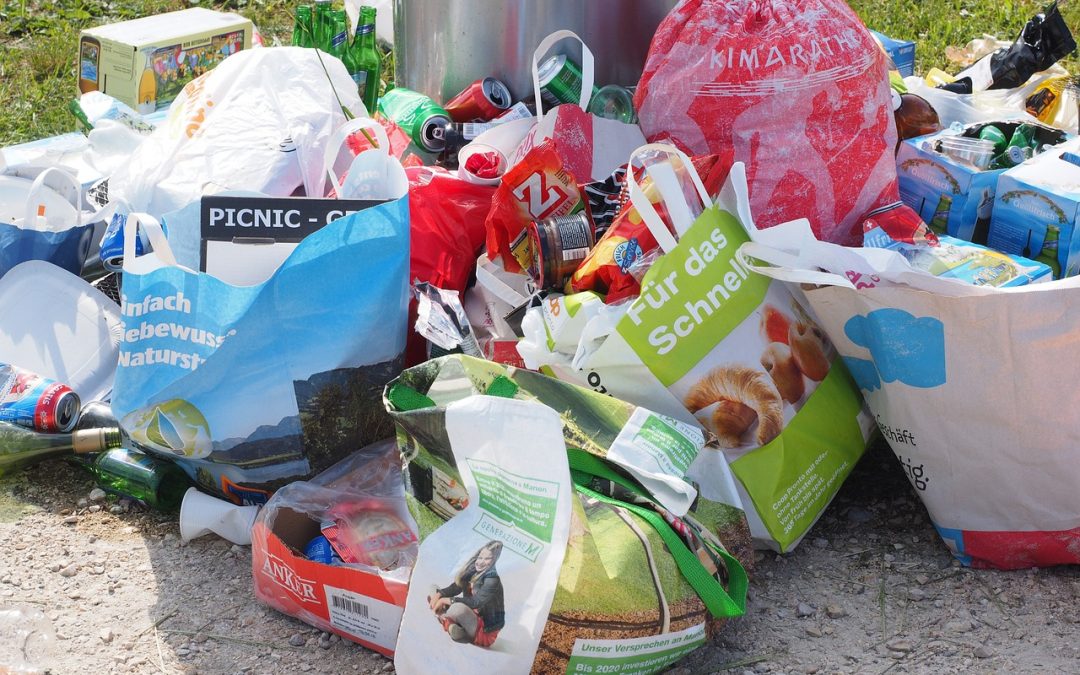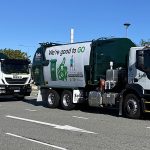The Problem with Food Packaging Waste

With the move to ban plastic bags at major supermarket chains in Australia at the end of June 2018, and the government’s commitment to make all Australian packaging reusable or recyclable by the year 2025, it is important to discuss the role food packaging plays in damaging our environment.
Convenience is key in the modern world we live in, and certainly food packaging is important for several reasons including maintaining food safety standards, safe transportation of goods and protecting food from contamination. So why do we need to think about minimising the use of food packaging and moving to a more sustainable way to package our goods?

The Impact of Food Packaging
It is difficult to imagine you are contributing to 1.9 million tonnes of packaging waste produced yearly when you are unwrapping the plastic off your muesli bar, but this alarming figure is more than just the waste itself. Packaging waste is responsible for polluting our climate, blocking our drains and potentially harming wildlife when it ends up in our oceans and rivers. It takes a lot of energy, water and other natural resources to produce packaging, so that single-use plastic you are unwrapping off your food forms part of a much larger environmental issue.
By choosing to reduce and recycle our packaging waste, we can minimise the amount of waste sent to our overflowing landfills and reduce the use of valuable resources and production of harmful emissions that are often associated with the manufacturing of packaging.
How to Live Sustainably
While it is an ongoing battle to change the way we produce and deal with our waste, there are steps you can take in your daily life to help create a more sustainable planet for future generations.
The ban on plastic bags by major supermarket chains is a great move toward sustainability by forcing us to be prepared with our own reusable and enviro-friendly shopping bags. There is still, however, a long way to go. When shopping, look for items with little or no packaging and choose not to bag your fruit and vegetables in plastic bags. Go for biodegradable or reusable packaging when possible. When storing food, opt for reusable glass containers instead of plastic.
When it comes to beverages, say no to bottled water and come prepared to your favourite café with a keep cup in hand. Avoid straws when possible and choose not to have a carry bag if you don’t really need one. If eating out, bring your own takeaway Tupperware instead of asking for a plastic container.
These small steps may seem minute, but if we collectively begin to become aware of how we are producing and generating waste, we may slowly start to see a move toward a more sustainable planet.
At Solo Resource Recovery, we understand the impact waste has on the environment, which is why our waste management solutions are always tailored with our planet in mind. We aim to reduce, re-use and recycle where possible and support initiatives to be more eco-friendly. If you would like to discuss a tailored waste management solution for your business, talk to us today. We would be more than happy to have a chat about a sustainable waste management plan that works for you.
Related Posts

Published: October 1, 2024
Is Your Waste Management Performance Up to Scratch? Discover the Solo Difference
Read more
Published: August 15, 2024
Solo Invests in the Future: Company Expands Fleet with Hydrogen Vehicles
Read more
Published: December 15, 2023